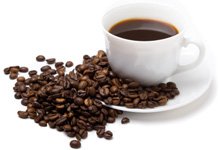How can sleep affect your physical performance
“Next to the air we breathe, food and sleep are the most crucial physical essentials for maintaining a sound and healthful state of living.” (Pickett & Morris, 1975).
Sleep deprivation impacts how we feel, it can make us feel sluggish, irritable, tired and unproductive. Sleeping less that 6 hours per night for 4 or more nights in a row can impair thought clarity, mood, glucose metabolism, appetite and immune function.
Athletes, sleep and performance
 Sleep is essential to our health and well-being, however many athletes still do not get enough. Athletes tend to sleep less then 7h per night, however should be getting between 9-10 hours. Many factors contribute to poor sleep: training schedule, practice times, travel, jet lag, competition anxiety, overtraining and poor nutrition. Sleep deficit impairs athletic performance, recovery and global health. Healthy sleep habits such as, ideal environment (cool, dark, quiet and comfortable), napping (30 min power nap), healthy diet and establishing routines, can all help. Interestingly, diet and sleep influence the other.
Sleep is essential to our health and well-being, however many athletes still do not get enough. Athletes tend to sleep less then 7h per night, however should be getting between 9-10 hours. Many factors contribute to poor sleep: training schedule, practice times, travel, jet lag, competition anxiety, overtraining and poor nutrition. Sleep deficit impairs athletic performance, recovery and global health. Healthy sleep habits such as, ideal environment (cool, dark, quiet and comfortable), napping (30 min power nap), healthy diet and establishing routines, can all help. Interestingly, diet and sleep influence the other.
Nutritional intervention
Athletes with a balanced and healthy nutritional diet tend to have better sleeping patterns. Proper sleep may lead to better athletic performance and recovery. However, some athletes still may experience sleep problems and dietary changes might help improve this. Chemicals in your brain, such as serotonin, gamma-amunobutyric acid (GABA), melanin-concentrating hormones, noradrenaline and histamine, control the sleep-wake cycle. Natural sleep aids such as minerals, amino acids and herbal based supplements are thought to alter these chemicals.
Tryptophan
The brain converts the essential amino acid tryptophan into serotonin. This conversion is dependent on the ratio of free tryptophan to branched-chain amino acid (BCAA). When this ratio is increased (more tryptophan compared to BCAA), free tryptophan is transported into the brain and converted into serotonin, which in turn is converted to melatonin (hormone associated with the control of circadian rhythms). Sleep disturbances are associated with decreased tryptophan. Studies suggest that the intake of tryptophan could help improve sleep. Tryptophan-rich foods include, milk, meat, fish, poultry, eggs, beans, peanuts, cheese and leafy greens. Staterra supplement programs provide ideal tryptophan ratios.
Meal composition
A diet high in carbohydrates can help athletes drift off faster. It is believed that carbohydrates 4 hours before bed can facilitate the release of insulin, triggering uptake of BCAA into the muscle and thus resulting in increased tryptophan in the brain. On the other hand, diets high in protein can also improve sleep quality by helping you stay asleep all night. High fat diets are associated with a decrease in total sleep time. Fixed meal plans provided by a nutritionist that are low in saturated fat and high in protein can help athletes fall asleep faster.
Nutritional factors that disrupt sleep
Alcohol is often incorrectly believed to help you snooze, however, even low blood alcohol level can be detrimental to sleep quality. Alcohol is a likely cause of many sleep issues for athletes.
Athletes  frequently use caffeine to improve performance. Athletes who take high doses of caffeine during late afternoon/evening competitions and training sessions report trouble falling asleep.
frequently use caffeine to improve performance. Athletes who take high doses of caffeine during late afternoon/evening competitions and training sessions report trouble falling asleep.
Hydration can be a huge factor for sleep. Athletes that hyper-hydrate in the evening are more prone to sleep disturbance due to nighttime urination.
Nutritional guideline for sleep
- Diets containing carbohydrates consumed more than 1h before bedtime can help falling asleep faster
- Low caloric intake can disrupt sleep
- High quality protein in your diet can improve sleep quality
- High fat diets decrease sleep quality
- Tryptophan may improve your ability to fall asleep and sleep quality
- Athletes must carefully examine the timing, the quantity and the quality of food intake
- A food and sleep journal may provide vital information for athletes and nutritionists on how to improve sleep though nutritional means.
- Stay away from alcohol consumption
- Decrease caffeine intake prior to bedtime
- Decrease fluid intake prior to bedtime if you are repeatedly waking up at night to use the bathroom
- If all else fails, try a glass of warm milk
References:
St-Onge MP, Roberts A, Shechter A, Choudhury AR. Fiber and saturated fat are associated with sleep arousals and slow wave sleep. J Clin Sleep Med, 2016;12(1):19
Halson SL. Sleep in elite athletes and nutritional interventions to enhance sleep. Sports Med. 2014 May;44 Suppl 1:S13-23.
Halson SL. Nutrition, sleep and recovery. Eur J Sport Sci., 2008: 8(2).


